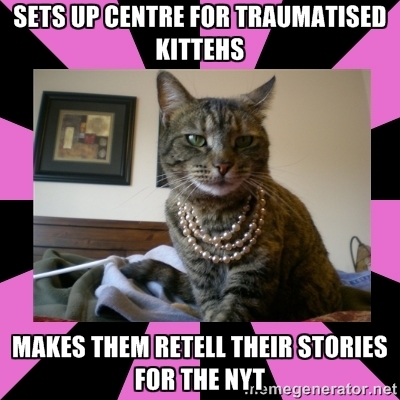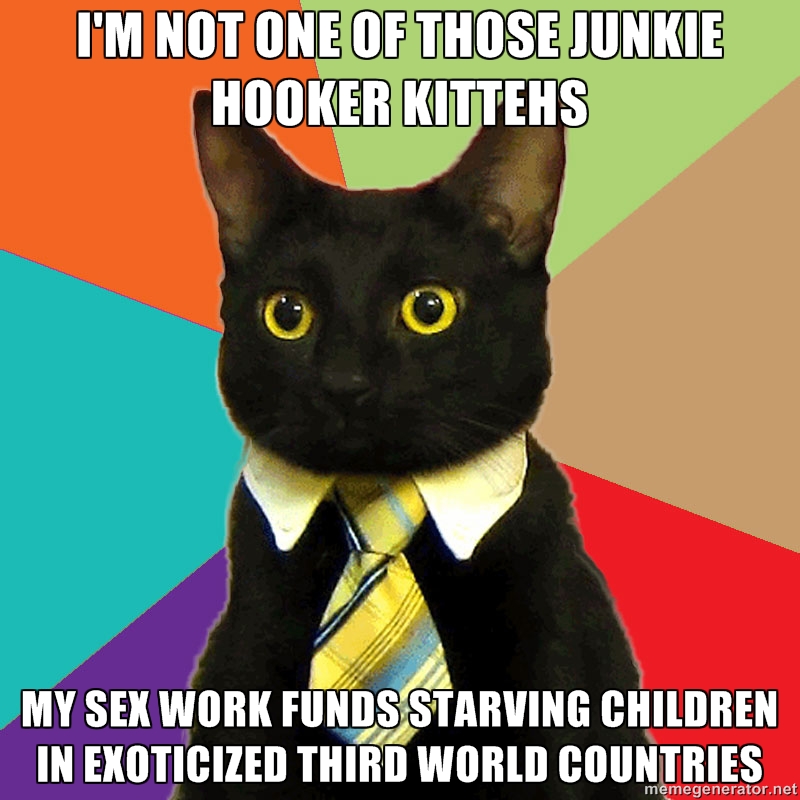Watching portrayals of sex workers in film and television can be a pretty rough proposition. With the notable exception of “Secret Diary of a Call Girl” (which eventually veered off into some wacky territory of its own) there haven’t been many media depictions of sex workers where we aren’t treated as punchlines or murdered. (Or… Continue reading Blue (2012- )
Stacks & Cats
Stripper from Los Angeles, currently living in Detroit. This is my Zath posing with cash from some of my best nights.—Reagan [editor’s note: I’m so insanely psyched to have this cat here this week. Zath is one of my favorite animals on Instagram] Sex workers, submit pictures of your furballs and funds here.
Who Gets Left Out: Respectability Politics Round Table, Part Two
You can read part one of this dialogue here. Emma Caterine: Red Umbrella Project has definitely encountered issues around pressure to conform to respectability politics from larger groups who fund or sponsor us in different ways. It is telling that I can’t mention many of the specifics for fear of re-opening old wounds. Particularly the… Continue reading Who Gets Left Out: Respectability Politics Round Table, Part Two
Who Gets Left Out: Respectability Politics Round Table, Part One
“Respectability politics” has been a recurring phrase coming up lately in conversations within the sex workers’ rights movement. In discussions on and off the site we’ve had about drug using sex workers, sex workers with disabilities, survival sex workers, etc., we’ve been bumping up against this idea constantly. The Tits and Sass editorial staff decided… Continue reading Who Gets Left Out: Respectability Politics Round Table, Part One
Quote of the Week
Individuals arrested as “pimps” during “rescue” operations are not necessarily abusers, traffickers, or exploiters; in fact, many are friends, family members, partners, etc. who happen to provide room, transportation, mentoring, security, and other assistance to people in the sex trade, or are financially supported by them, even though they are not abusing, coercing, exploiting, or… Continue reading Quote of the Week


